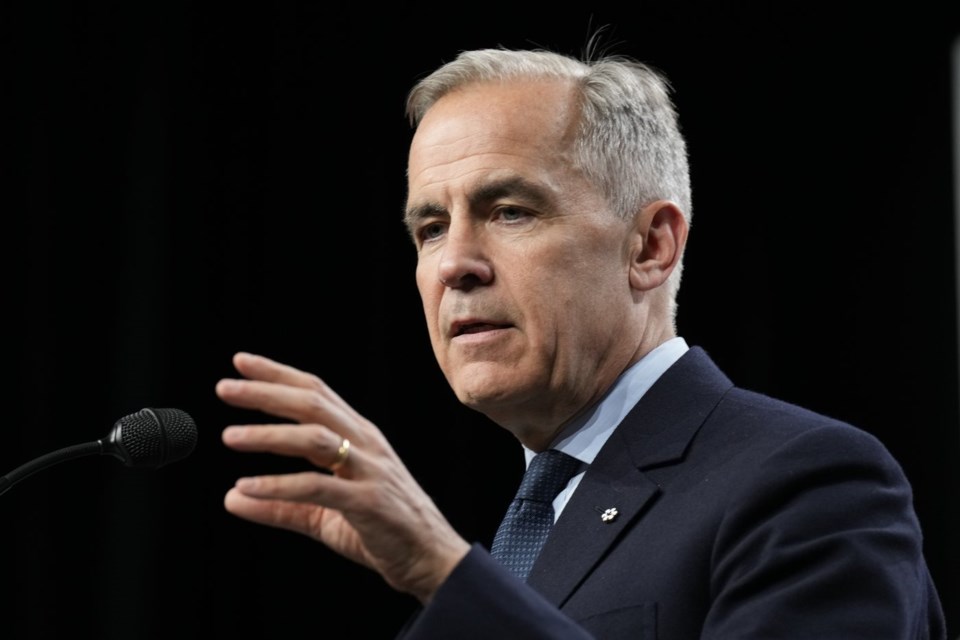OTTAWA — Running roughshod over the environment. Spawning the next Idle No More movement. Picking economic winners and losers.
Prime Minister Mark Carney’s Building Canada Act is anything if not a magnet for criticism.
The Liberal government’s controversial legislation that would let cabinet quickly grant federal approvals for big industrial projects like mines, ports and pipelines sailed through committee in the early hours of Thursday.
A House of Commons panel sat from Wednesday afternoon to after midnight reviewing Bill C-5 in a hurried study, as the Liberal government seeks to pass it through the chamber by week’s end.
Indigenous and environmental groups, along with opposition MPs and senators, raised concerns that the bill is being rushed through parliament and will grant cabinet sweeping powers to override other laws to plow ahead with industrial projects favoured by the government of the day.
“The process that led to Bill C-5 is a case study in how not to engage with Indigenous nations,” said Kebaowek First Nation Chief Lance Haymond, adding there was no “meaningful engagement” or a “recognition of the complexity of our rights, titles and interests.”
“The conditions for an Idle No More 2.0 uprising are being written into the law as we speak,” he told the House of Commons transport committee late Wednesday night.
The legislation enjoys support from the business community and building trades, who testified to parliament that it can take longer to get projects approved than to get them built.
Intergovernmental Affairs Minister Dominic LeBlanc appeared at the hearings to defend the bill, warning Canada is weathering a “storm of change” amid U.S. President Donald Trump’s punishing trade war and that the country needs to quickly bolster the economy.
“Canadians have entrusted us to do things differently and better and move nation-building projects forward,” he said.
The bill is two pieces of legislation rolled into one, with the first part aimed at breaking down internal trade barriers – something Carney promised to achieve by Canada Day.
The second part grants the government the ability to designate major projects to be in the "national interest," then fast-track their approval.
Thanks to help from the Conservatives, who won a handful of amendments to the bill, the Liberal legislation appears on track to clear the Commons at a brisk pace.
Even still, the Tories and the Bloc Québécois raised concerns that it consolidates too much power in the hands of the prime minister and his cabinet.
In a series of testy exchanges with LeBlanc, Bloc Québécois MP Xavier Barsalou-Duval said there’s no guarantee that the minister in charge of the new process will act in the best interests of the public by granting itself far-reaching powers.
“What we have at the end of the day is a series of decisions that will be made behind closed doors … and nothing guarantees that you won’t transform yourself into the minister of cronyism,” he said in French.
“I do not agree that this bill opens the door to corruption,” LeBlanc said in French.
As some MPs trotted out comparisons to the Emergencies Act, LeBlanc balked at the idea and added that it’s not comparable to a “White House presidential order,” either.
Conservative MP Philip Lawrence pressed LeBlanc on whether there are sufficient ethics screens in place.
He noted that Carney previously chaired Brookfield, which has a hand in infrastructure and construction, reviving conflict of interest concerns about Carney’s past ties to the firm that the party brought up constantly throughout the recent election.
LeBlanc said elected officials would continue to be bound by current ethics rules.
Critics lined up on Wednesday to warn one after another that the bill could pose a threat to species at risk and allow Ottawa to sidestep its duty to consult with Indigenous Peoples.
“The last thing we want to do is hold up industry and projects with court cases, and this is exactly where it’s headed,” Trevor Mercredi, grand chief of the Treaty 8 First Nations of Alberta, told the Commons committee.
"We say go back to the drawing board," Charles Hatt, climate program director with Ecojustice, said at a press conference.
Anna Johnston, a lawyer with West Coast Environmental Law, said the bill throws the principle of informed decision-making "out the window."
"Allowing cabinet to decide whether projects proceed before reviewing them is like building a house and then calling an engineer to ask if it's safe," she said.
Liberal MP Marcus Powlowski said he understands the concerns raised by Indigenous and environmental groups but believes the government needs to act quickly.
"Are we going to continue to put this on hold, to tinker with it and make slight amendments? I think it's important we pass this legislation and there's always an opportunity afterwards to amend it," he said.
Heather Exner-Pirot of the Macdonald-Laurier Institute think tank warned the bill lets political Ottawa pick winners and losers and is “rife with potential for abuse,” but she said she does not oppose it.
She said at the hearings that the Canadian economy needs to be turned around at a critical moment, and this should be the start of broader reforms to spur investment.
“What good is a pipeline if the emissions cap means you can’t fill it? What good is a railway if the Impact Assessment Act means you can’t mine products to ship on it?”
The House is scheduled to sit until Friday, and a Senate programming motion has the upper chamber wrapping up its examination of Bill C-5 by June 27.
— With files from Kyle Duggan, Alessia Passafiume, David Baxter and Sarah Ritchie
This report by The Canadian Press was first published June 18, 2025.
The Canadian Press




